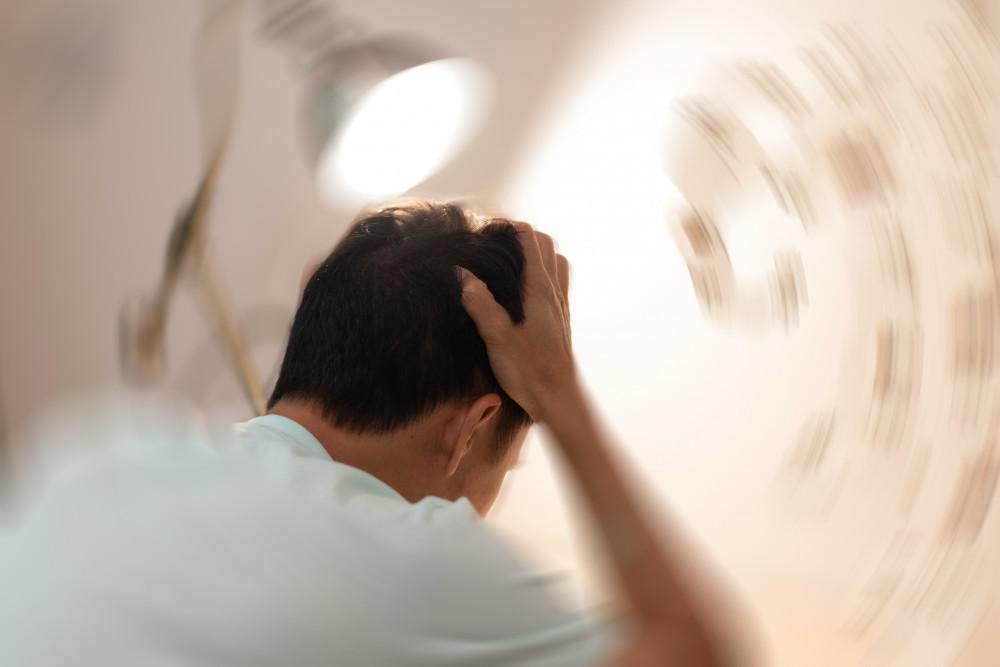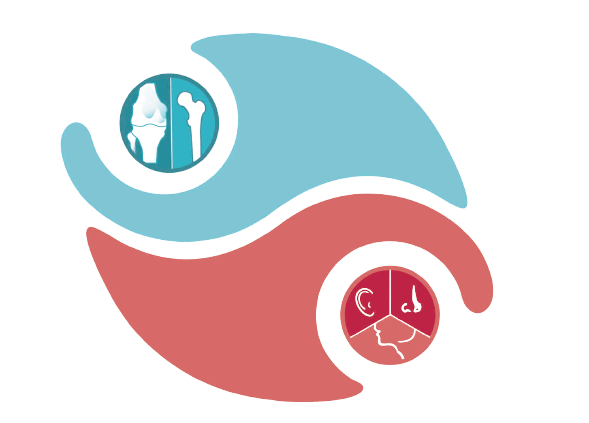Vertigo
- Home
- Vertigo

Vertigo is a sensation of feeling off balance. If you have these dizzy spells, you might feel like you are spinning or that the world around you is spinning.
Causes of Vertigo
Vertigo is often caused by an inner ear problem. Some of the most common causes include:
BPPV. These initials stand for benign paroxysmal positional vertigo. BPPV occurs when tiny calcium particles (canaliths) are dislodged from their normal location and collect in the inner ear. The inner ear
sends signals to the brain about head and body movements relative to gravity. It helps you keep your balance.
BPPV can occur for no known reason and may be associated with age.
Meniere’s disease. This is an inner ear disorder thought to be caused by a buildup of fluid and changing pressure in the ear. It can cause episodes of vertigo along with ringing in the ears (tinnitus) and hearing loss.
Vestibular neuritis or labyrinthitis. This is an inner ear problem usually related to infection (usually viral). The infection causes inflammation in the inner ear around nerves that are important for helping the body sense balance
Less often vertigo may be associated with:
- Head or neck injury
- Brain problems such as stroke or tumor
- Certain medications that cause ear damage
- Migraine headaches
Symptoms of Vertigo
Vertigo is often triggered by a change in the position of your head. People with vertigo typically describe it as feeling like they are:
- Spinning
- Tilting
- Swaying
- Unbalanced
- Pulled to one direction
Other symptoms that may accompany vertigo include:
- Feeling nauseated
- Vomiting
- Abnormal or jerking eye movements (nystagmus)
- Headache
- Sweating
- Ringing in the ears or hearing loss
Symptoms can last a few minutes to a few hours or more and may come and go.
Treatment for Vertigo
Treatment for vertigo depends on what’s causing it. In many cases, vertigo goes away without any treatment. This is because your brain is able to adapt, at least in part, to the inner ear changes, relying on other mechanisms to maintain balance.
Self Care
Depending on what’s causing your vertigo, there may be things you can do yourself to help relieve your symptoms. Your GP or the specialist treating you may advise you to:
- Do simple exercises to correct your symptoms
- Sleep with your head slightly raised on two or more pillows
- Get up slowly when getting out of bed and sit on the edge of the bed for a minute or so before standing
- Avoid bending down to pick up items
- Avoid extending your neck – for example, while reaching up to a high shelf
- Move your head carefully and slowly during daily activities
- Do exercises that trigger your vertigo, so your brain gets used to it and reduces the symptoms (do these only after making sure you won’t fall, and have support if needed)
For some, treatment is needed and may include:
Vestibular rehabilitation. This is a type of physical therapy aimed at helping strengthen the vestibular system. The function of the vestibular system is to send signals to the brain about head and body movements relative to gravity.
Vestibular rehab may be recommended if you have recurrent bouts of vertigo. It helps train your other senses to compensate for vertigo.
Canalith repositioning maneuvers. Guidelines from the American Academy of Neurology recommend a series of specific head and body movements for BPPV. The movements are done to move the calcium deposits out of the canal into an inner ear chamber so they can be absorbed by the body. You will likely have vertigo symptoms during the procedure as the canaliths move.
A doctor or physical therapist can guide you through the movements. The movements are safe and often effective.
Medicine. In some cases, medication may be given to relieve symptoms such as nausea or motion sickness associated with vertigo.
If vertigo is caused by an infection or inflammation, antibiotics or steroids may reduce swelling and cure the infection.
For Meniere’s disease, diuretics (water pills) may be prescribed to reduce pressure from fluid buildup.
Surgery. In a few cases, surgery may be needed for vertigo.
If vertigo is caused by a more serious underlying problem, such as a tumor or injury to the brain or neck, treatment for those problems may help to alleviate vertigo.
